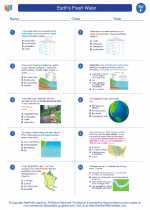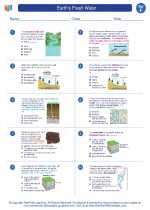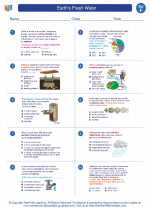Carbon Dioxide
Carbon dioxide (CO2) is a chemical compound composed of two oxygen atoms covalently bonded to a single carbon atom. It is a colorless and odorless gas that is naturally present in the Earth's atmosphere.
Properties of Carbon Dioxide
- Physical State: At room temperature and pressure, carbon dioxide exists as a gas. However, it can be converted into a solid (dry ice) at temperatures below -78.5 degrees Celsius.
- Solubility: Carbon dioxide is soluble in water, and this solubility plays a crucial role in various natural processes, such as carbonation in beverages and the formation of carbonate rocks.
- Acidic Nature: When dissolved in water, carbon dioxide forms a weakly acidic solution due to the formation of carbonic acid (H2CO3).
Sources of Carbon Dioxide
Carbon dioxide is produced through natural processes such as respiration in animals and plants, volcanic eruptions, and the decay of organic matter. Additionally, human activities, including the burning of fossil fuels, industrial processes, and deforestation, have significantly increased the concentration of carbon dioxide in the atmosphere.
Role in the Carbon Cycle
Carbon dioxide is a vital component of the carbon cycle, playing a key role in the exchange of carbon between the atmosphere, oceans, soil, and living organisms. Through processes such as photosynthesis and respiration, carbon dioxide is constantly cycled between these reservoirs, influencing Earth's climate and the overall balance of carbon in the environment.
Study Guide
Here are some key points to focus on when studying carbon dioxide:
- Understand the chemical structure of carbon dioxide and its physical properties.
- Explore the natural and anthropogenic sources of carbon dioxide.
- Examine the role of carbon dioxide in the carbon cycle and its impact on the environment and climate.
- Learn about the various ways in which carbon dioxide is utilized in different industries and its effects on atmospheric composition.
It's essential to grasp the significance of carbon dioxide in both natural and human-influenced processes, as well as its implications for global environmental issues.
.◂Science Worksheets and Study Guides Sixth Grade. Earth's Fresh Water

 Worksheet/Answer key
Worksheet/Answer key
 Worksheet/Answer key
Worksheet/Answer key
 Worksheet/Answer key
Worksheet/Answer key
 Vocabulary/Answer key
Vocabulary/Answer key
 Vocabulary/Answer key
Vocabulary/Answer key
